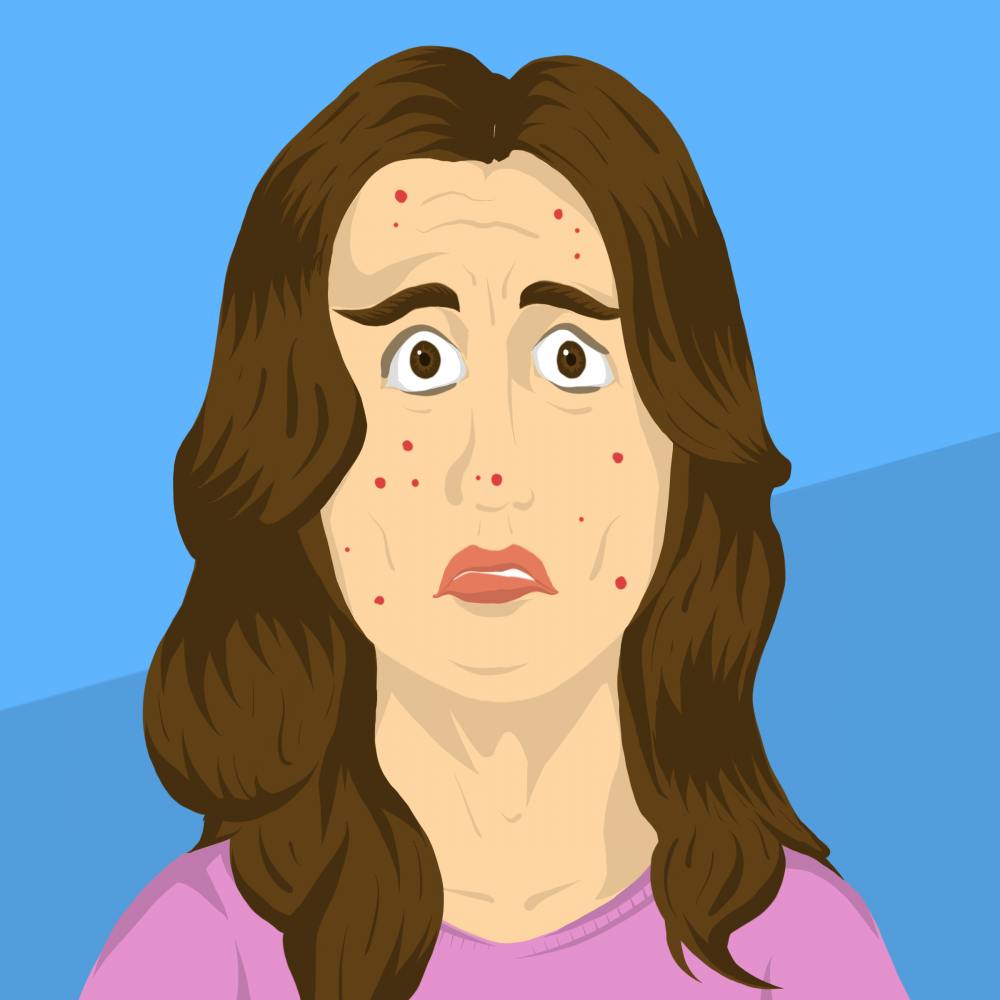Last week, I nervously waited for an allergist to prick my back with 37 possible food triggers, any one of which could cause my skin to react in hives. I couldn’t help but laugh at the Atlantic article that popped up on my phone, entitled “Pimples Could Be Good for Your Grades.” The too-good-to-be-true title speaks for itself. Although writer Alia Wong takes a fairly balanced approach to discussing evidence for the correlation between acne and strong academic performance, her words still project a patronizing tone of faux sympathy for acne sufferers. By positing the correlation — that is inconclusive at best — as some sort of boon for the acne-plagued, her words diminish the debilitating trauma that acne causes its victims.
Few people on campus know about my intense battle with acne and how it has affected most of my daily life. On my part, I have concealed my scars and cysts with makeup and have been reticent to talk about my struggles due to the fear that others will judge me or misinterpret my hormonal acne as a product of poor diet or lack of hygiene. However, having read Wong’s piece, I am finally ready to start a serious conversation about acne — one that doesn’t try to sugarcoat its horrifying consequences but instead focuses on finding effective solutions for treating it.
My acne is the reason why I haven’t published any pieces since the summer. Most of my spare time has been spent dealing with medical issues: an extreme photodermatitis rash that burned my skin until it turned purple and started peeling and a severe breakout that involved blood and pus. Then, there was what appeared to be flesh-eating papules ravaging my jawline. I know there are other students on campus — male and female — who I am sure are silently suffering through similar issues. Now, I feel as though someone should respond to Wong’s claim that fluff like the weak link between acne and good grades is “a small but valuable nugget of good news” for those of us who see acne as their constant nemesis.
I do not believe there will ever be a mythical “silver lining” to a condition that is as physically, emotionally, mentally, and financially draining as acne. Wong may see it as a sufficient normative justification for why we should accept our acne. But I cannot imagine that anyone who deals with the chronic burden of taking antibiotics, applying acid-laced topicals, and restricting their diet to boiled beans and vegetables is going to be comforted by the vaguest possibility that their GPA may increase. I may be vain, but I can safely say that the practical utility of a potential boost in grades does not outweigh my desire to find a treatment for my condition. And having heard from other people who are also struggling to accept their physical disfiguration due to acne, I am equally certain that I am not alone in my preference order.
I also believe that the “good grades” justification represents a major contributing factor to hormonal acne for some students like myself. From what I’ve been told by several doctors, acne is part of a larger and vicious stress-related cycle that takes over its victims’s lives. Initial academic stress and pressure lead to hormonal imbalances in stressed out, overworked students, causing their acne. Their initial acne flare-up then adds to their emotional stress that later continues to fuel their continual breakouts. No products, diets, or medical procedures can alleviate their condition. The cycle continues unchecked until they are able to identify techniques for dealing with stressors like school and work. Ironically, Wong’s flippant positive endorsement of academic focus may be entirely misplaced.
Furthermore, although I can’t dispute the evidence that Wong cites, I want to provide another contrary perspective as someone who represents the epitome of an acne-riddled, stressed-out student. I’ve found that cystic acne, at least in my case, has not provided me any motivation to concentrate on schoolwork. I am more than convinced that the pain of my acne, compounded with my incessant worries about other people’s negative perceptions of my appearance, has only forced me to avoid focusing on school in order to worry about my physical and emotional health. Add to the mix sleep-inducing antihistamines, an hour-long hygiene regime twice daily, and constant doctors’ visits, and lately I’ve had barely enough energy to even glance at my readings. Thus, I fail to see how the evidence cited in Wong’s article can provide comfort to someone in my position who does not identify with its overly optimistic, morale-boosting narrative.
Ultimately, I applaud writers like Wong for trying to avoid the trap of painting acne as a stigma. However, I think it is time that the dialogue surrounding acne move past citing generalized, specious evidence for why acne victims should simply accept their condition. There’s no reason why we should satisfy ourselves with a one-size-fits-all, Pollyanna-esque explanation that misleadingly picks out supposed good features about what often feels like an objectively bad, insidious condition to its victims. We shouldn’t pooh-pooh our reactions to acne-related symptoms or spend any more time aimlessly searching for a logical justification for acne when there is none to be found. Instead, what we need now are more open conversations about how to manage and combat the deeply personal, complex problems that acne presents.
Hayley Siegel is a junior Philosophy concentrator from Princeton, N.J. She can be reached at hsiegel@princeton.edu.








